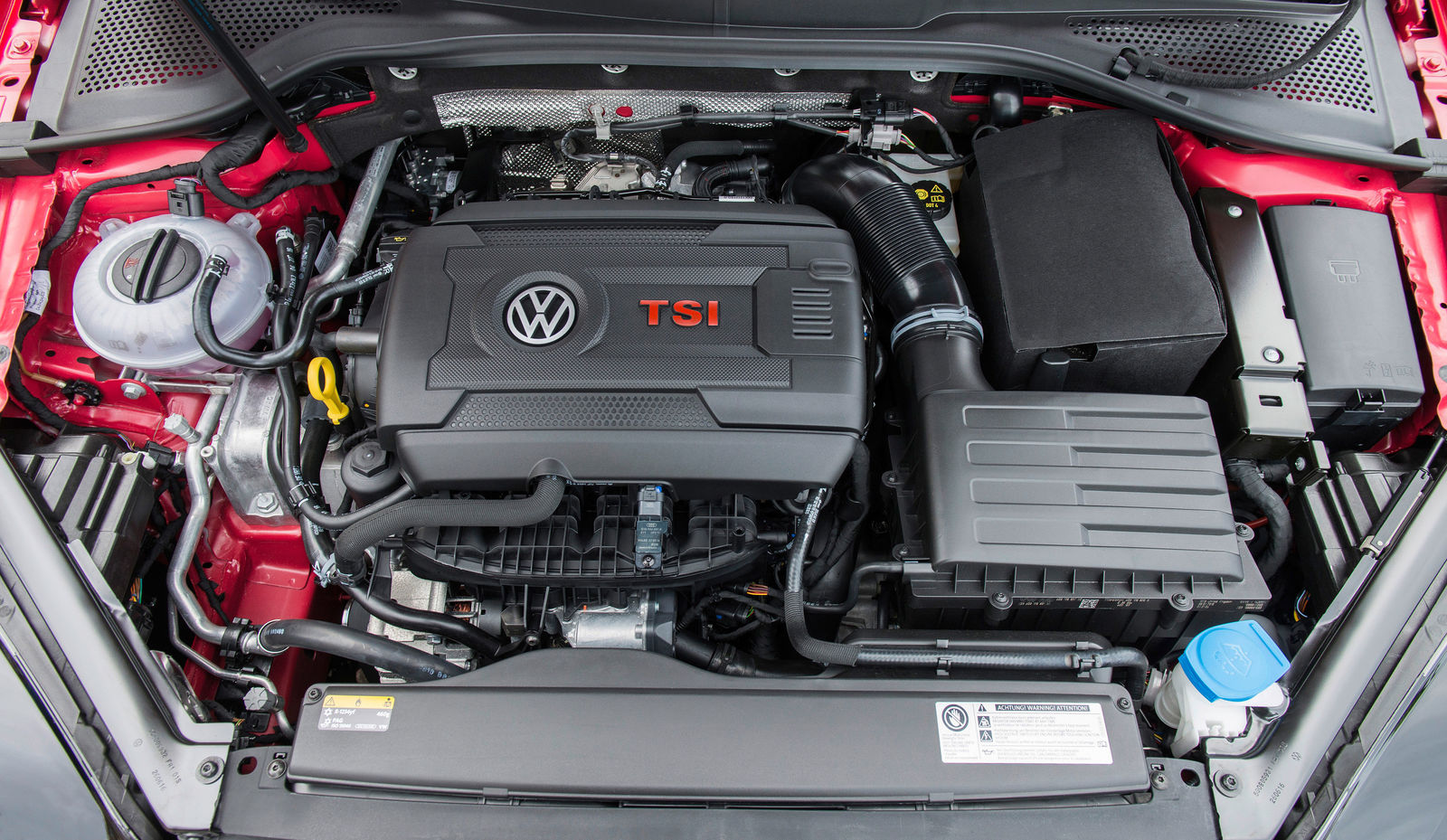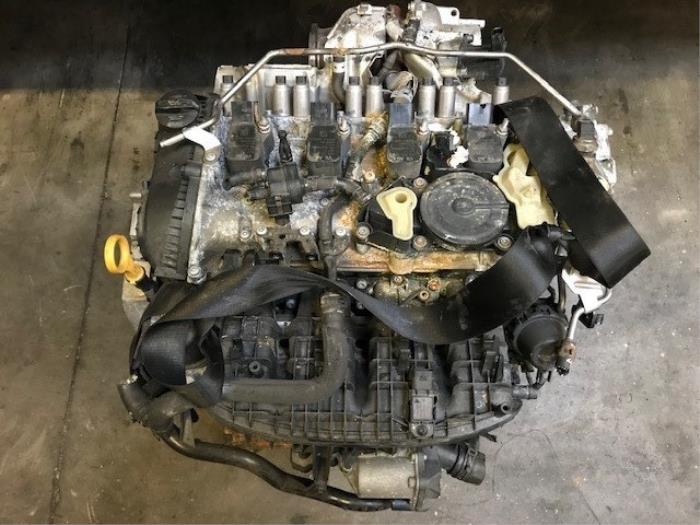Your Guide to the Golf 7 GTI Engine: Dependability and Upgrades
The Golf 7 GTI, equipped with its 2.0-liter turbocharged inline-four engine, stands for an equilibrium of efficiency and reliability that attract fanatics and day-to-day motorists alike. Comprehending the variables that add to its stability, alongside potential issues and their services, is critical for optimizing the driving experience. In addition, exploring numerous efficiency upgrades can considerably enhance both power and efficiency. However, the question stays: what details upgrades can change your GTI right into a really outstanding car while ensuring its long life?
Introduction of the Golf 7 GTI Engine
The heart of the Golf 7 GTI is its 2.0-liter TSI engine, a turbocharged four-cylinder that provides an excellent mix of power and efficiency. This engine generates a robust 220 horsepower and 258 lb-ft of torque, allowing the lorry to speed up from 0 to 60 mph in simply 5.6 seconds, showcasing its sporty character. The turbocharged design not only boosts efficiency yet likewise enhances gas effectiveness, making it a sensible option for everyday driving.
Integrating innovative innovation, the engine features direct fuel shot, which improves combustion performance and lowers emissions. Additionally, the Golf 7 GTI is equipped with either a six-speed guidebook or a six-speed DSG dual-clutch automatic transmission, supplying drivers with the adaptability to pick their preferred driving design. The vehicle's front-wheel-drive layout, combined with a well-tuned suspension, guarantees active handling and a receptive driving experience.
Engine Reliability Elements
Integrity is a critical aspect of any performance-oriented lorry, and the Golf 7 GTI's engine is no exception. A number of elements add to the overall reliability of this highly related to powerplant, which is essential for both everyday driving and perky performance.
To Start With, the Golf 7 GTI is geared up with a durable 2.0-liter turbocharged inline-four engine, understood for its reliable style and solid design. This engine features a forged steel crankshaft and light weight aluminum engine block, which offer remarkable toughness and toughness while reducing weight.
Second of all, routine upkeep plays a vital function in improving engine integrity. Abiding by the maker's suggested service intervals, using top quality lubricating substances, and replacing essential parts such as trigger filters and plugs can dramatically extend engine life.
Furthermore, the quality of gas used can likewise influence integrity. Costs gas is recommended to ensure optimal performance and decrease the threat of knocking or detonation.
Lastly, the vehicle's electronic management system continuously keeps track of engine parameters, permitting real-time changes to enhance efficiency and effectiveness while protecting versus prospective concerns. Jointly, these aspects highlight the Golf 7 GTI engine's reputation for integrity among enthusiasts and day-to-day motorists alike.
Usual Issues and Solutions
The Golf 7 GTI, while commemorated for its performance, is not without its challenges. Among one of the most often reported concerns are engine oil intake and turbocharger failings, which can substantially influence car reliability. Recognizing these common issues and their options is crucial for maintaining optimal engine performance.

Engine Oil Consumption
While numerous lovers appreciate the efficiency of the Golf 7 GTI, engine oil usage can emerge as a significant problem. Proprietors may observe that their vehicles call for even more frequent oil top-ups than anticipated, typically credited to various aspects inherent in the engine's layout and operation.
One usual issue is the engine's direct fuel injection system, which can result in enhanced oil consumption as a result of the burning process. Furthermore, making use of high-performance driving habits can intensify oil burn-off, specifically under aggressive throttle conditions. Chauffeurs may additionally experience oil leakages from seals and gaskets, which can contribute to minimized oil degrees.
To attend to oil usage, regular maintenance is important. Regular oil changes using top notch synthetic oil can aid preserve optimal engine efficiency and longevity. Monitoring oil levels and performing timely checks can protect against prospective concerns before they rise. If excessive intake continues, it may be advisable to get in touch with an expert service technician to analyze the engine for prospective inner problems, such as worn piston rings or shutoff seals. Taking on these practices can considerably minimize concerns pertaining to oil intake in the Golf 7 GTI, ensuring a much more reliable and delightful driving experience.
Turbocharger Failures
Turbocharger failings can significantly influence the performance of the Golf 7 GTI, leading to diminished power and efficiency. Oil leakages frequently stem from worn seals or damaged gaskets, which can lead to oil contamination and succeeding engine damage.
One more common trouble is wastegate failure, which can cause overboost or underboost problems. This not only affects the car's efficiency however can likewise bring about major engine damage if left untreated. Upgrading to an extra robust wastegate can improve integrity and efficiency.
Too much shaft play indicates wear in the turbocharger's bearings, which can cause a complete turbo failure. Keeping track of boost pressure and listening for uncommon noises can aid spot this issue early.
To avoid turbocharger failures, regular upkeep, consisting of oil modifications and air filter replacements, is vital. Furthermore, purchasing high-grade aftermarket components might give improved integrity and efficiency, eventually improving the driving experience of the Golf 7 GTI.
Efficiency Upgrades to Think About
What performance upgrades can absolutely elevate the driving experience of a Golf 7 GTI? To release the complete capacity of this legendary warm hatch, numerous targeted adjustments can improve power, dealing with, and total driving pleasure.
Among the most reliable upgrades is a high-performance turbocharger. Changing the supply system with an aftermarket option can substantially increase horse power and torque, delivering a more exhilarating velocity experience. Enhancing this upgrade with a performance intercooler assists keep ideal temperatures, making certain consistent power shipment.
Following, consider upgrading the exhaust system. A much less restrictive exhaust not just boosts engine effectiveness however additionally produces a much more hostile audio that enhances the cars and truck's flashy character. Combining this with a remapped visit this web-site ECU will certainly enhance gas distribution and ignition timing, additional enhancing performance.
Suspension upgrades, such as adjustable coilovers, can boost handling by lowering the car's facility of gravity and reducing body roll. Additionally, a collection of high-performance tires will enhance hold, permitting for sharper cornering and enhanced total stability.
With each other, these upgrades can change the Golf 7 GTI into a more exhilarating and vibrant driving maker, making every journey an unforgettable experience. golf 7 gti engine.
Advised Upkeep Practices
Keeping the Golf 7 GTI engine needs focus to vital methods that make sure optimal efficiency and long life. Regular oil changes are essential for engine health and wellness, while prompt timing belt replacement is vital to stop prospective failures. Executing these maintenance methods will aid keep your vehicle running efficiently and effectively.
Regular Oil Changes
Normal oil adjustments are important for the optimum efficiency and longevity of the Golf 7 GTI's engine. Preserving a consistent oil modification timetable guarantees that the engine operates smoothly and effectively. The advised interval for oil modifications is commonly every 5,000 to 10,000 kilometers, depending upon driving problems and the sort of oil made use of.
Using high-quality artificial oil is important as it provides remarkable lubrication and thermal stability contrasted to traditional oils. This is specifically crucial for the Golf 7 GTI, which includes a turbocharged engine that produces greater operating temperatures. Regular oil modifications aid to eliminate impurities and sludge accumulation, which can endanger engine efficiency and lead to premature wear.
Moreover, fresh oil boosts fuel performance and reduces hazardous discharges, contributing to a cleaner environment. Throughout the oil adjustment procedure, it is additionally a good idea to replace the oil filter to make certain ideal filtration and avoid any kind of debris from going into the engine. Complying with these practices not just helps preserve the engine's stability yet additionally maintains the value of the car, making normal oil changes a crucial aspect of liable GTI ownership.
Timing Belt Replacement
The timing belt is a vital component of the Golf 7 GTI's engine, liable for synchronizing the turning of the crankshaft and camshaft. This synchronization is essential for optimal engine efficiency and performance. If the timing belt falls short, it can lead to catastrophic engine damages, making timely replacement essential.

When planning a timing belt substitute, it is recommended to also replace the water pump and tensioner. These parts function in conjunction with the timing belt and often experience similar wear, guaranteeing optimal efficiency and longevity. Using OEM parts is advised for their reliability and compatibility with the Golf 7 GTI's engine.
Specialist installment is very urged, as improper installation can bring about severe engine breakdowns. Normal maintenance of the timing belt not just shields the stability of the engine yet likewise enhances the total driving experience of the Golf 7 GTI. golf 7 gti engine. Prioritizing this task helps maintain vehicle reliability and performance in time
Aftermarket Components and Adjustments
Countless enthusiasts turn to aftermarket components and alterations to boost the efficiency and visual appeals of the Golf 7 GTI. These upgrades can significantly improve the lorry's responsiveness, managing, and general driving experience. Popular alterations consist of high-performance air consumptions, exhaust systems, and intercoolers, which can enhance horse power and torque by enhancing air consumption and exhaust circulation.
Suspension upgrades are likewise widespread, with alternatives varying from reducing springtimes to completely flexible coilover sets that boost experience top quality and cornering capability. Updated brakes, consisting of efficiency pads and blades, can give better stopping power, making sure safety and control during spirited driving.
Visual adjustments, such as aftermarket wheels, body kits, and personalized lighting, enable owners to individualize their cars while preserving a stylish appearance. Engine tuning, whether with ECU remapping or standalone engine monitoring systems, can open added performance potential, making the GTI much more exciting Discover More to drive.
While aftermarket adjustments can yield considerable benefits, it's important to pick credible brands and take into consideration the potential influence on warranty and integrity. Correct setup and adjusting are crucial to guarantee the long life of the car while delighting in the enhancements.
Enhancing Gas Effectiveness
Improving gas effectiveness in the Golf 7 GTI can lead to significant cost savings and a lowered environmental impact. Achieving better gas economy calls for a combination of driving routines, upkeep methods, and tactical adjustments.
One effective method is taking on a smooth driving design, preventing rapid acceleration and heavy braking, which can dramatically reduce gas consumption. Maintaining optimum tire pressure is additionally vital; under-inflated tires can increase moving resistance, leading to their website lowered effectiveness. Routine maintenance, including engine tuning and air filter replacements, ensures that the engine operates at peak efficiency, additionally boosting gas economic climate.
For those seeking upgrades, think about an efficiency song that concentrates on efficiency as opposed to large power. Eco-mode setups, if offered, can change throttle response and shift points to make the most of fuel financial savings. Additionally, lightweight aftermarket wheels can lower weight and improve performance without jeopardizing efficiency.
Last but not least, using aerodynamic improvements, such as a front splitter or back looter, can reduce drag at higher rates, adding to far better gas economic situation. By implementing these techniques and modifications, Golf 7 GTI proprietors can enjoy enhanced fuel effectiveness while keeping the lorry's perky driving features.
Verdict
In final thought, the Golf 7 GTI engine exemplifies a blend of efficiency and dependability, driven by a well-engineered 2.0-liter turbocharged inline-four. Different performance upgrades and aftermarket adjustments can improve driving experience while keeping stability.
The Golf 7 GTI, geared up with its 2.0-liter turbocharged inline-four engine, represents a balance of efficiency and integrity that charms to enthusiasts and daily chauffeurs alike. Routine oil modifications using premium synthetic oil can assist maintain ideal engine efficiency and longevity.Routine oil changes are essential for the optimum efficiency and long life of the Golf 7 GTI's engine. Regular servicing, including engine adjusting and air filter replacements, makes certain that the engine runs at peak efficiency, further boosting gas economic situation.
